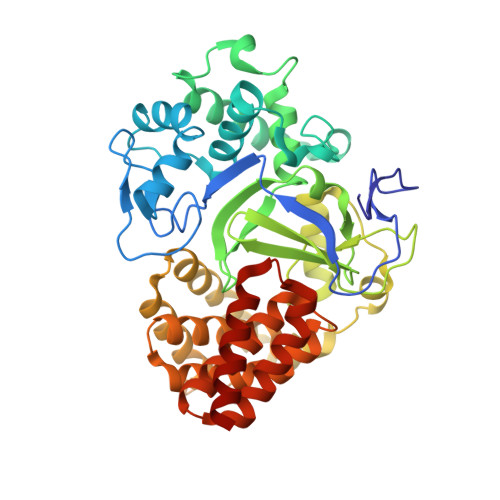Discovery of Irreversible Inhibitors Targeting Histone Methyltransferase, SMYD3.
Huang, C., Liew, S.S., Lin, G.R., Poulsen, A., Ang, M.J.Y., Chia, B.C.S., Chew, S.Y., Kwek, Z.P., Wee, J.L.K., Ong, E.H., Retna, P., Baburajendran, N., Li, R., Yu, W., Koh-Stenta, X., Ngo, A., Manesh, S., Fulwood, J., Ke, Z., Chung, H.H., Sepramaniam, S., Chew, X.H., Dinie, N., Lee, M.A., Chew, Y.S., Low, C.B., Pendharkar, V., Manoharan, V., Vuddagiri, S., Sangthongpitag, K., Joy, J., Matter, A., Hill, J., Keller, T.H., Foo, K.(2019) ACS Med Chem Lett 10: 978-984
- PubMed: 31223458
- DOI: https://doi.org/10.1021/acsmedchemlett.9b00170
- Primary Citation of Related Structures:
5YJO, 6IJL - PubMed Abstract:
SMYD3 is a histone methyltransferase that regulates gene transcription, and its overexpression is associated with multiple human cancers. A novel class of tetrahydroacridine compounds which inhibit SMYD3 through a covalent mechanism of action is identified. Optimization of these irreversible inhibitors resulted in the discovery of 4-chloroquinolines, a new class of covalent warheads. Tool compound 29 exhibits high potency by inhibiting SMYD3's enzymatic activity and showing antiproliferative activity against HepG2 in 3D cell culture. Our findings suggest that covalent inhibition of SMYD3 may have an impact on SMYD3 biology by affecting expression levels, and this warrants further exploration.
- Experimental Drug Development Centre, 10 Biopolis Road #05-01 Chromos, Singapore 138670.
Organizational Affiliation:



















